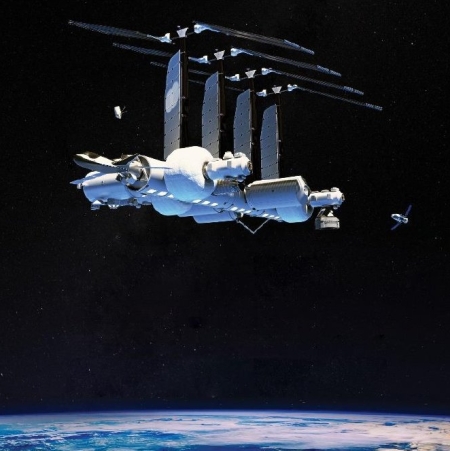Blue Origin rethinking plans for landing its first stage?
Capitalism in space: Though the company has said little, according to this local Florida newspaper Blue Origin is rethinking its plans to use the cargo ship Jacklyn as a platform for landing its New Glenn first stages in the ocean.
The 600-foot former cargo ship has been docked at the Port of Pensacola since 2018 and undergoing a retrofit by the Pensacola company Offshore Inland to enable the ship to serve as a landing platform for the first stage of Blue Origin’s New Glenn rocket.
When contacted by the News Journal to ask if the retrofit project had been canceled, a Blue Origin spokesperson responded that no final decision had been made yet.
The company is looking at “different options” for recovery vessels that give the best chance for mission success while also being safe and cost-effective, the spokesperson said.
This could be good news or bad news. Either it means Blue Origin is now getting close to finally launching New Glenn, which is three years behind schedule, or it has suddenly realized that using this cargo ship never made sense, and it is scrambling to find a solution at this late date.
Capitalism in space: Though the company has said little, according to this local Florida newspaper Blue Origin is rethinking its plans to use the cargo ship Jacklyn as a platform for landing its New Glenn first stages in the ocean.
The 600-foot former cargo ship has been docked at the Port of Pensacola since 2018 and undergoing a retrofit by the Pensacola company Offshore Inland to enable the ship to serve as a landing platform for the first stage of Blue Origin’s New Glenn rocket.
When contacted by the News Journal to ask if the retrofit project had been canceled, a Blue Origin spokesperson responded that no final decision had been made yet.
The company is looking at “different options” for recovery vessels that give the best chance for mission success while also being safe and cost-effective, the spokesperson said.
This could be good news or bad news. Either it means Blue Origin is now getting close to finally launching New Glenn, which is three years behind schedule, or it has suddenly realized that using this cargo ship never made sense, and it is scrambling to find a solution at this late date.

